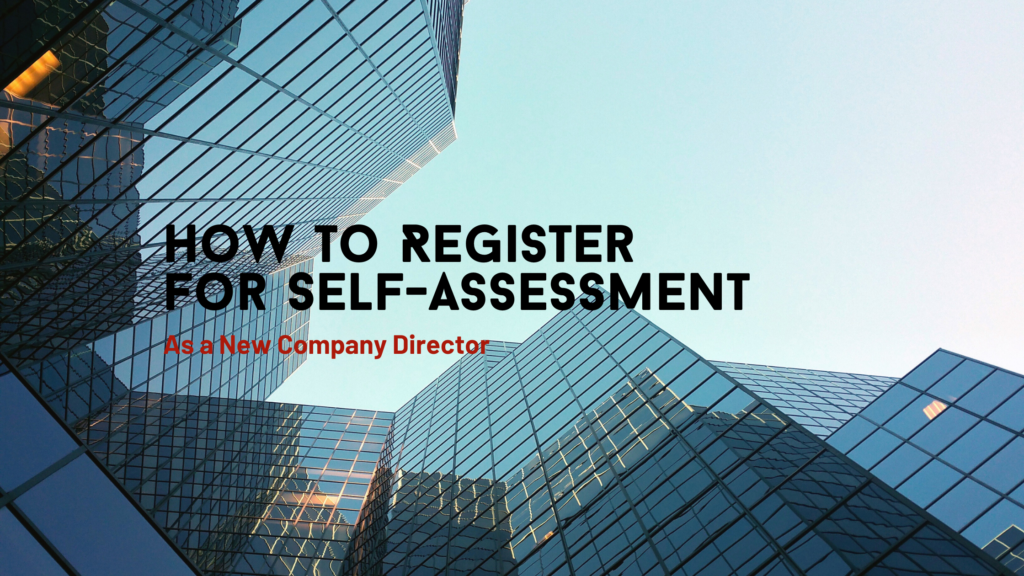Starting your own company is exciting but comes with responsibilities, especially regarding taxes. As a new company director, understanding your tax obligations is crucial. Registering for self-assessment ensures you pay the correct tax on any income from your role. This article will go through how to register for self-assessment as a new company director and offer helpful tips to stay compliant and avoid penalties.
What Are the Key Responsibilities of a Company Director
A company director has several crucial responsibilities beyond just running the business, including the following:
Understanding Your Tax Obligations
As a company director, you need to handle your personal taxes. This includes income tax on your salary, dividends, other income, and National Insurance Contributions (NICs) if your salary is above certain limits. It’s essential to maintain accurate financial records to make sure you meet all your obligations. Filing your taxes accurately and making informed business decisions both become easier with this approach.
Why Timely Registration for Self-Assessment is Crucial
Eligibility Criteria: Who Should Register for Self-Assessment?
You must register for self-assessment if you earn untaxed income, like dividends, or if your total income exceeds the personal allowance, including income from investments or rental properties.
When Company Directors Need to Register for Self-Assessment
Not all company directors need to register for self-assessment. You must register if you receive untaxed income, such as dividends or other taxable income. If you’re both a director and a shareholder, you might pay yourself dividends, necessitating self-assessment registration to report this income and pay the correct taxes. Besides, you must register if you earn more than the personal allowance from all sources of income combined or have other taxable income, such as rental or investment earnings.
Self-Assessment Registration for Non-Resident Directors
If you’re a non-UK resident director, you might still need to register for self-assessment if you receive income from a UK-based company. The registration requirements can differ slightly, especially if your UK-sourced income hasn’t been taxed at the source.
Don’t Delay Submit your Self Assessment Before The Deadline
Submit your tax return by 31 January to avoid late filing penalty. Swiftacc offers expert Self Assessment tax return services, starting at just £99.
Book an AppointmentWhatsApp UsStep-by-Step Registration Process for Company Directors
Registering for Self-Assessment is essential for a company director. Follow these steps to complete the process accurately and efficiently.
Required Information and Documentation
- Create a Government Gateway Account.
- Visit the Online Registration Form.
- Go to online.hmrc.gov.uk/shortforms/form/SA1 and sign in to your tax account.
- Fill in the Registration Form:
- Provide the following information:
- Your full name (and any previous name)
- National Insurance number
- Date of birth
- Residential address and the date you moved there
- Telephone number and email address
- The reason for registering (e.g., ‘I am a company director’)
- Date you received untaxed income
- Receive Your UTR and Activation Code
- As with self-employed individuals, you’ll receive your UTR and activation code by post within 1-2 weeks. Use these to activate your online account within 28 days.
For more detailed instructions on the registration process, you can also check out our article on How to Register for Self-Assessment: A Step-by-Step Guide.
Understanding Tax Regulations: Tips for New Directors
One common challenge new company directors face is understanding the various tax regulations. It’s easy to feel overwhelmed by the different rules and rates that apply to other types of income. Educate yourself on income tax, NICs, and dividend tax basics to overcome this. Seeking professional help from an accountant or tax advisor can also be beneficial. Once you’ve completed self-assessment, understanding how to pay your taxes effectively is the next critical step.
Time Management Tips for Directors Handling Self-Assessment
Balancing your responsibilities as a director with your tax obligations can be challenging. Here are some strategies to help:
- Set Reminders: Use digital calendars to set reminders for key tax deadlines.
- Delegate Tasks: If possible, delegate some administrative tasks to free up your time.
- Dedicated Time: Set aside weekly dedicated time to focus on your financial records and tax obligations.
Using digital tools and software can also help streamline the process, making it easier to manage your time effectively.
Essential Resources and Tools for New Company Directors
There are several online resources you can use to manage your tax obligations more effectively:
- Tax Calculators: Tools like HMRC’s online calculators can help you estimate your tax liabilities.
- Educational Blogs: Websites like GOV.UK offers valuable information and updates on tax regulations.
- Accounting Software: Using accounting software that integrates with HMRC‘s systems makes the entire process more manageable.
Understanding and registering for self-assessment as a new company director is crucial for staying compliant and avoiding penalties. You can manage your tax responsibilities effectively by knowing your tax obligations, registering on time, and benefitting from the right tools and resources. If you’re unsure where to start, don’t hesitate to seek professional advice.
Ready to get started? Book a free consultation with us to register as a director for self-assessment today and take the first step towards managing your tax obligations effectively.
Frequently Asked Questions
What is the deadline for registering for self-assessment?
The deadline for registering for self-assessment as a company director is October 5th, following the end of the tax year, for which you need to file a return. It’s important to register by this date to avoid penalties.
How do I know if I need to file a self-assessment tax return?
If you are a company director who receives untaxed income or dividends, you will likely need to file a self-assessment tax return. Check HMRC guidelines or contact a tax advisor for specific advice on your situation.
Can I register for self-assessment if I’m not tech-savvy?
Yes, you can still register for self-assessment even if you aren’t comfortable with online systems. HMRC provides a telephone service where you can get assistance with registration. You can also get help from a professional accountant to guide you through the process.
What should I do if I miss the registration deadline?
If you miss the registration deadline, you should register as soon as possible. Late registration may lead to penalties, but contacting HMRC can help mitigate issues. Be prepared to explain why the registration was late.
Are there any annual fees associated with self-assessment?
There are no specific annual fees for the self-assessment process itself, but you may incur costs if you choose to use accounting software or professional tax services to help manage your filings and financial records.
How Can I Check if HMRC Has Processed My Tax Return?
Once you have submitted your tax return, you can confirm its processing by logging into your HMRC online account. There, you should be able to see if your return has been received and processed. For steps on checking your tax return status and handling issues, read our guide on How to Confirm HMRC Has Processed Your Tax Return.

